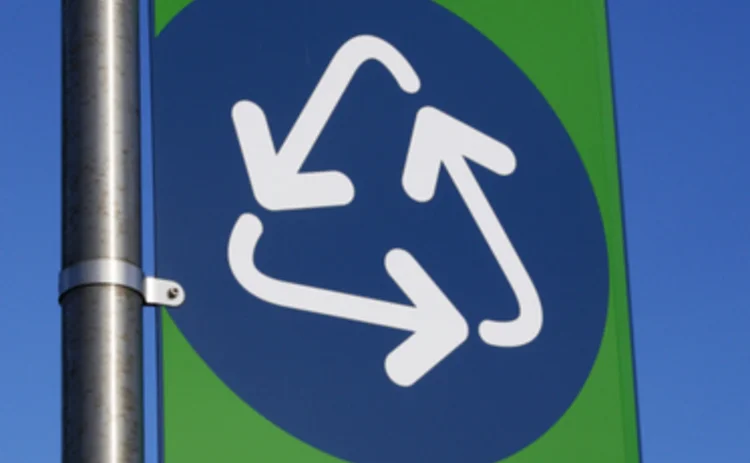
This article was paid for by a contributing third party.

Blog: How using recycled parts can help address claims inflation and meet ESG objectives


World events are driving economic uncertainty. The UK economy is beginning to emerge from the decline driven by the global Covid-19 pandemic, but the forecasted recovery faces challenges.
In the UK, the cost of living is rising at a rate not seen for over 30 years. The war in Ukraine shows no signs of resolving and will have far-reaching economic effects beyond the abject desolation it is wreaking. Putin continues to threaten to limit gas supplies to only those prepared to pay in Rubles and our own domestic energy suppliers have doubled their prices as a result of the government increasing the price cap. Meanwhile, environmental concerns must factor in future business decision making.
The latest report from the Intergovernmental Panel on Climate Change underlines that the planet continues to heat up and time is running out to reverse the trend.
How can motor insurers and their salvage partners work together to help weather this storm? UK new car sales saw the worst figures in 24 years last month, as UK households feel the financial squeeze and the motor manufacturing sector battles supply chain issues. Just 243,000 new cars were registered, down over 14% since March 2021. The salvage market is closely monitoring auction performance for any signs of downward trends which could signal that previously overheated values in the used car market are beginning to re-adjust.
An end-of-life vehicle is an insurer asset, and its value can be realised either by selling the vehicle on for repair, assuming it has been awarded a permissible salvage code, or by dismantling and recycling its original equipment manufacturer parts for re-use in motor claims repairs.
Salvage partners who are also automotive recyclers can remarket a vehicle at auction, and the authorised treatment facilities and expertise to recycle its parts for re-use. They are able to respond proactively to market forces, providing their insurer clients with options so that they can extract maximum value from the vehicle. Organisations that remarket and sell vehicles for dismantling are unable to be as responsive and cannot offer the insurer’s motor claims eco-system such an effective, joined-up supply of recycled parts.
Rising motor claims costs continue to challenge insurers and are exacerbated by the economic climate. The UK car insurance industry replaced over 15 million car parts in 2021. Recycled OEM parts offer insurers savings of up to 75% on retail prices and reduce key-to-key times by avoiding delays arising due to the unavailability of new parts. Reducing the claim life cycle can also help to control rising credit hire costs.
At a time when household budgets are under pressure, using recycled parts in motor repairs represents an opportunity for insurers to give their customers a choice. A total loss claim sees the customer lose their vehicle and consequently, the insurer lose their customer. Using recycled parts to reduce repair costs can avoid a total loss, and the associated friction, where it would otherwise be considered uneconomically viable to repair the vehicle. The vehicle remains on the road and is able to deliver value to the policyholder, boosting customer satisfaction and insurer reputation.
The environmental benefits of recycled parts are equally positive. As part of the insurance supply chain, salvage agents and automotive recyclers have been proactive in reducing environmental impact with responsible business practices for decades.
Automotive recyclers are targeted by the Environment Agency to recycle 95% of all end-of-life vehicles and annually report their compliance to Department for Environment, Food & Rural Affairs. Re-use of vehicle parts is a very carbon-efficient way of recycling end-of-life vehicles and offers users significant CO2 reductions on the manufacture and often international transportation of new parts. Insurers are welcoming the opportunity to work with their salvage and automotive recycling partners to reduce their carbon footprint through the use of recycled parts and support their ESG targets.
The pandemic saw many insurers and their salvage and automotive recycling suppliers develop closer, strategic relationships which can be leveraged to assist through the continued economic uncertainty. A strategic partnership based on mutual benefit, shared knowledge and value creation will arm insurers with the flexibility to adapt swiftly to changing market needs. They will have access to informed and trusted salvage and automotive recycling expertise to collaborate and deliver service resilience to customers in times of challenge. These partnerships deliver the insight to inspire innovation and the market can expect to see advantage being taken of emerging opportunities as they arise.
Sponsored
Copyright Infopro Digital Limited. All rights reserved.
You may share this content using our article tools. Printing this content is for the sole use of the Authorised User (named subscriber), as outlined in our terms and conditions - https://www.infopro-insight.com/terms-conditions/insight-subscriptions/
If you would like to purchase additional rights please email info@postonline.co.uk
Copyright Infopro Digital Limited. All rights reserved.
You may share this content using our article tools. Copying this content is for the sole use of the Authorised User (named subscriber), as outlined in our terms and conditions - https://www.infopro-insight.com/terms-conditions/insight-subscriptions/
If you would like to purchase additional rights please email info@postonline.co.uk